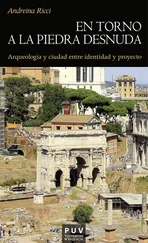Now, here I am, in my torn stockings and with my bleeding hand, staring at my poor wife as she turns to me on the stairway and I read in her face some terrible calamity. "My dear!" I burst out, whipping from my pocket a plum-coloured silk handkerchief and fumblingly binding my hand with it. "Welcome to Bidnold! If you had given me a little warning, I would have made everything ready for you."
"I need no welcome," says Celia, and her voice is reedy, like the voice of an old dying crone. "The servants will show me to my room."
"Yes," I stammer, "or I will show you. It's to be the Marigold Room…"
My hand is bound now, but as I take hold of the banister rail and prepare to mount the stairs towards her, I see her recoil from me, as from some rearing viper. "Stay away!" she whispers, seemingly faint with revulsion. "Please stay away."
I stop at once and smile at her kindly. "Celia," I say, remembering her name at last, "you need have no fear of me whatsoever. I will never ask anything of you. All I wanted was to show you to your room, the colours and furnishings of which I hope may be of some comfort to you in whatever misfortune – "
"The servants will show me. Where is my woman, Sophia?"
"What?" I say.
"Where is my woman? Where is Sophia?"
"I have no idea. Did you bring her with you? She's your maid?"
"Yes. Call her please, Merivel."
I turn and look towards the front door. Two grooms are stumbling through it with a leather trunk, filled no doubt with ermine-trimmed bonnets and newt-skin shoes bought for his Dear One by my sometime master, the King. My mind is travelling in sudden sorrow towards a certain set of striped dinner napkins, now unused but kept folded in linen in an oaken chest, when I suddenly see Pearce, panting and wheezing like his late mule, arrive in my hall.
"Ah, Pearce." I say quickly. "Have you caught sight of a woman named Sophia?"
Pearce is blinking. His huge eyes, his prehensile nose and his long neck make him, on the instant, resemble a species of nocturnal tree-climbing animals I have seen described as marsupials (a strange word).
"No," says Pearce. "What is occurring, Merivel? I scent some misfortune."
"Yes," I say, "misfortune there does seem to be. But for now we must find my wife's woman…"
"Your wife is come?"
"Yes. Here she is. Go out to her carriage please, Pearce, and tell her maid that her mistress calls."
Pearce is wiping his eyes on his threadbare cloak, the better to believe that the ghostly woman in black is indeed Celia Clemence, last glimpsed by him laughing merrily at her wedding. I am about to urge him outside once more when a buxom, ugly, dark-haired woman of perhaps thirty-five appears, carrying two or three dresses in her arms.
"Sophia," Celia calls hoarsely, "come up."
Sophia looks from Pearce to me, seems immediately affronted by the sight of us both and so goes swiftly up the stairs to where her mistress is reaching out her hand.
At my side, emerged from I know not where, I now find Will Gates.
"Will," I say with great urgency, "please conduct my wife and her woman to the Marigold Room."
"The Marigold Room, Sir?" whispers Will. "Might I suggest another?"
"No, you might not," I snap.
Will glares at me but nonetheless, like the matchless servant that he is, goes nimbly up the stairs past the two women and with his habitual unflowery courtesy leads them onwards and up. The grooms follow with the heavy trunks and boxes.
I did not see Celia again that day.
After supper, which I took alone with Pearce, I enquired of my cook whether orders had come down for food. I was told that some bouillon and a plum tartlet had been sent up.
"Was it eaten?" I asked.
"Either that," said my wall-eyed chef, Cattlebury, "or the dog had it?"
"Dog?"
"Aye, Sir."
"What dog, Cattlebury?"
"Mr Gates, Sir, says they brought in a dog, a small Spaniel like the one as died on you, Sir Robert."
Ah, was my melancholy thought as I left the kitchens, the King is too cunning for us all! To those he knows he must one day abandon, he gives this sweet, living gift, just to be certain that our love for him remains with us (as if he could doubt that it would!) in case he may, at some future time, have need of us again. Poor Celia!
As I returned to my Study, where I had left Pearce reading some forgotten Latin text from my Padua days, I resolved that I must try, as soon as she would let me, to offer words of understanding and comfort, and in so doing perhaps find a little relief from my own despair. For there was no doubt in my mind now: the King had sent her away. She had played her part, just as I had once played mine, and now he had cast us off. I imagine him at dinner, his arm draped elegantly round Lady Castlemaine's white shoulders, the candlelight lending a seductive gloss to the little moustache he keeps so fastidiously trimmed. He leans towards Castlemaine, nibbles the emerald dangling from her ear. "What do you know of Norfolk, Barbara?" he whispers.
"Very little," she replies, "except that it is far from London!"
"Precisely!" smiles the King, "and therefore useful to me. It is there, you see, that I envoie all those I have begun to find tedious."
"Well," I said to Pearce, as I sat down in the Study, "I believe I know now for certain what has happened. What I greatly fear, however, is that Celia will believe her life is over. I really do not think she will ever be consoled."
Pearce (as is one of his irritating habits, detested by me since our student days) did not so much as glance up from his book when I finished speaking, but simply read on, as if I had not even entered the room. I waited. Sometimes I find Pearce so deeply annoying that, were I the King, I could have bouts of wanting to send him to Norfolk.
"Pearce," I said, "did you hear what I said?"
"No," said Pearce. "I didn't. I imagine it was some observation on your wife's plight."
"Yes, it was."
"Well, I have nothing to add. Fools such as you have become and courtesans such as she, once the whiplash of mirth or passion has died, invariably feel the scourge of the whip itself."
I sighed. I opened my mouth to discourage Pearce from further muddled metaphorical utterances of this kind when he lifted the little book he'd been reading and brandished it in my face.
" This is interesting!" he announced. "On the Cartesian question of spontaneous generation: 'For if generation of the lower forms is not spontaneous, then vermiculus unde venit ? Whence the maggot?' "
I got up. "I'm sorry, Pearce," I said, my voice brittle and cold, "but I do not feel able, after the troubles of this day, to enter upon a discussion of maggots. I shall go and play my oboe until bedtime."
With that I strode out and went to my Music Room. I shall spare you an account of my struggles with my instrument that evening and the quantity of anxious spittle with which reed after reed was saturated. I shall report only that I wrestled with simple scales for an hour or more, after which time my grazed hand was giving me so much pain that I lay down on the floor of the Music Room and put it between my thighs, with my knees drawn up to my stomach, and in this childlike posture fell into a troubled sleep.
When I awoke, very stiff and cold, with my hand swollen and set into a premature rigor mortis , I saw from the grey light at the window that the winter dawn was breaking over Norfolk, County of Exiles. Despite my numbness and pain, I found myself, on the instant of waking, filled with purpose and resolve. I must go immediately to Celia. I must make her understand that, stranger to her though I am, disagreeable though she may find my physical self, I am occasionally a person of generous mind and that – forswearing any hope of recompense or reward – I am content to be her protector and treat her with respect and kindness for as long as she remains at Bidnold.
Читать дальше











